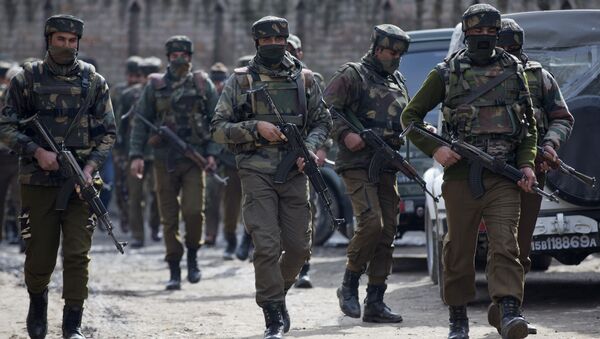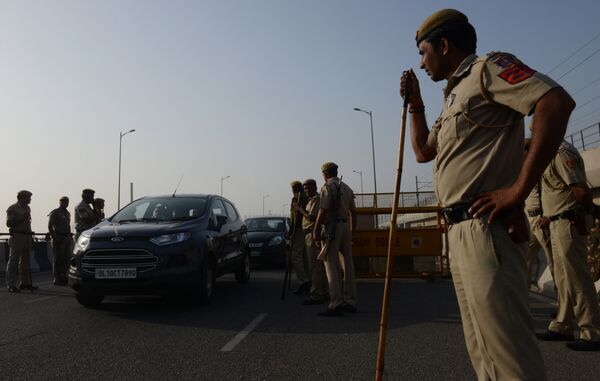Law enforcement officials claimed that Naxalite insurgents had allegedly planted the explosives in a road which is frequently used by VIPs and security convoys.
Two improvised explosive devices (IEDs), each weighing about 30 kilograms, were recovered and defused by security forces in Dantewada district, which is about 485 kilometres from Chhattisgarh's state capital Bilaspur, the news portal India Today quoted police officials as saying.
The explosives were found under a bridge that links Dantewada district headquarters with the village of Katekalyan, the police officials added.
A 150-metre-long electric wire connecting the two improvised explosives was also recovered from the spot, police said.
Last week, police in the Indian state of Andhra Pradesh confirmed the surrender of three insurgents following a gun battle. The three men allegedly surrendered to the Deputy Superintendent of Police of Paderu in the state's Visakhapatnam district.
The so-called Naxalite insurgent movement began as an armed peasant revolt in Naxalbari village, located in the Indian state of West Bengal, in 1967. It has since spread across vast areas of India, including the states of Chhattisgarh, Odisha, Bihar, Bengal, Madhya Pradesh, Jharkhand, Maharashtra, Andhra Pradesh and Telangana.
The radical communist group advocates the overthrow of India's national government by force. The Indian government has described Naxalism as the biggest internal security challenge facing the country since it gained independence from British colonial rule in 1947.



